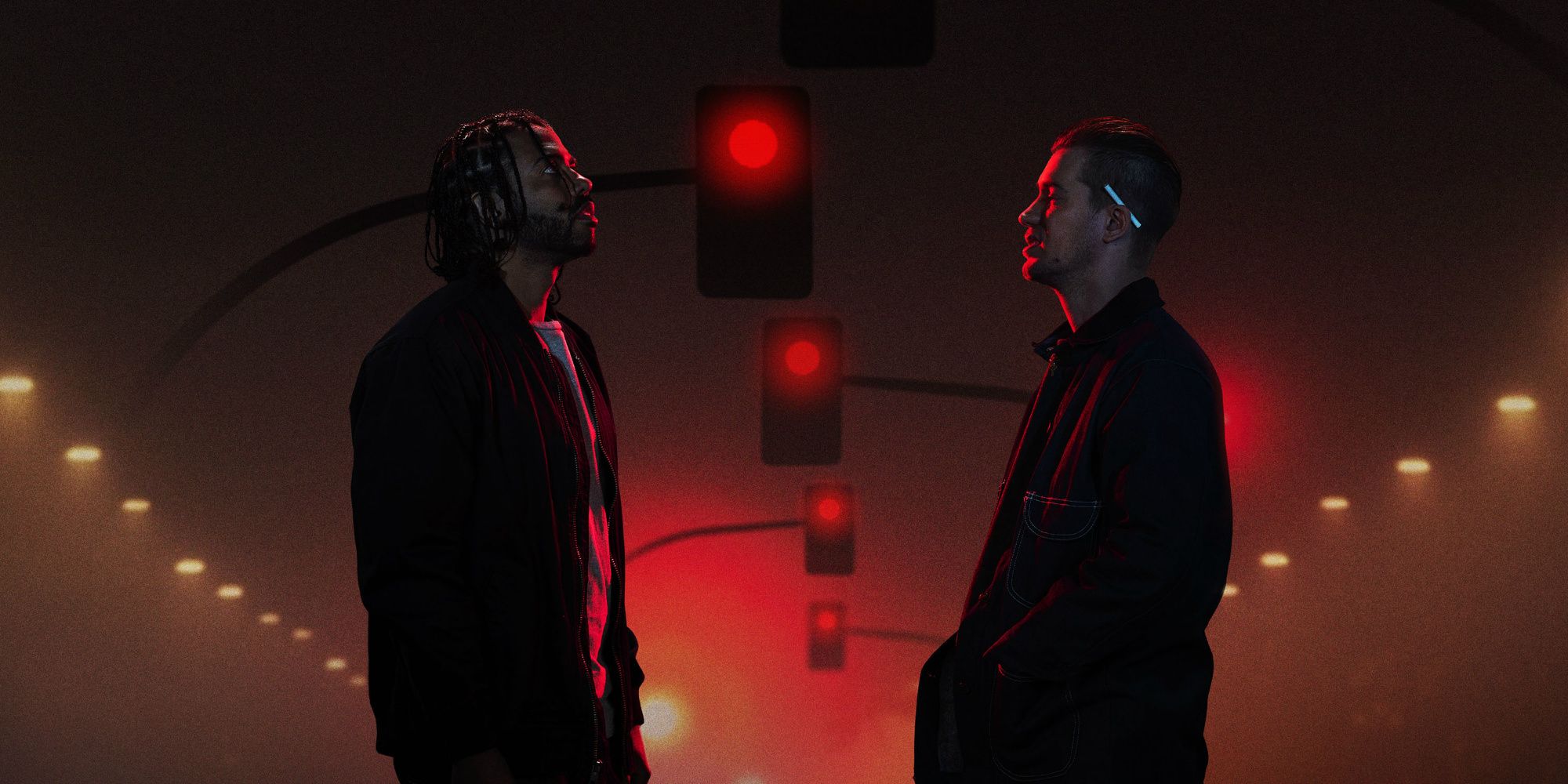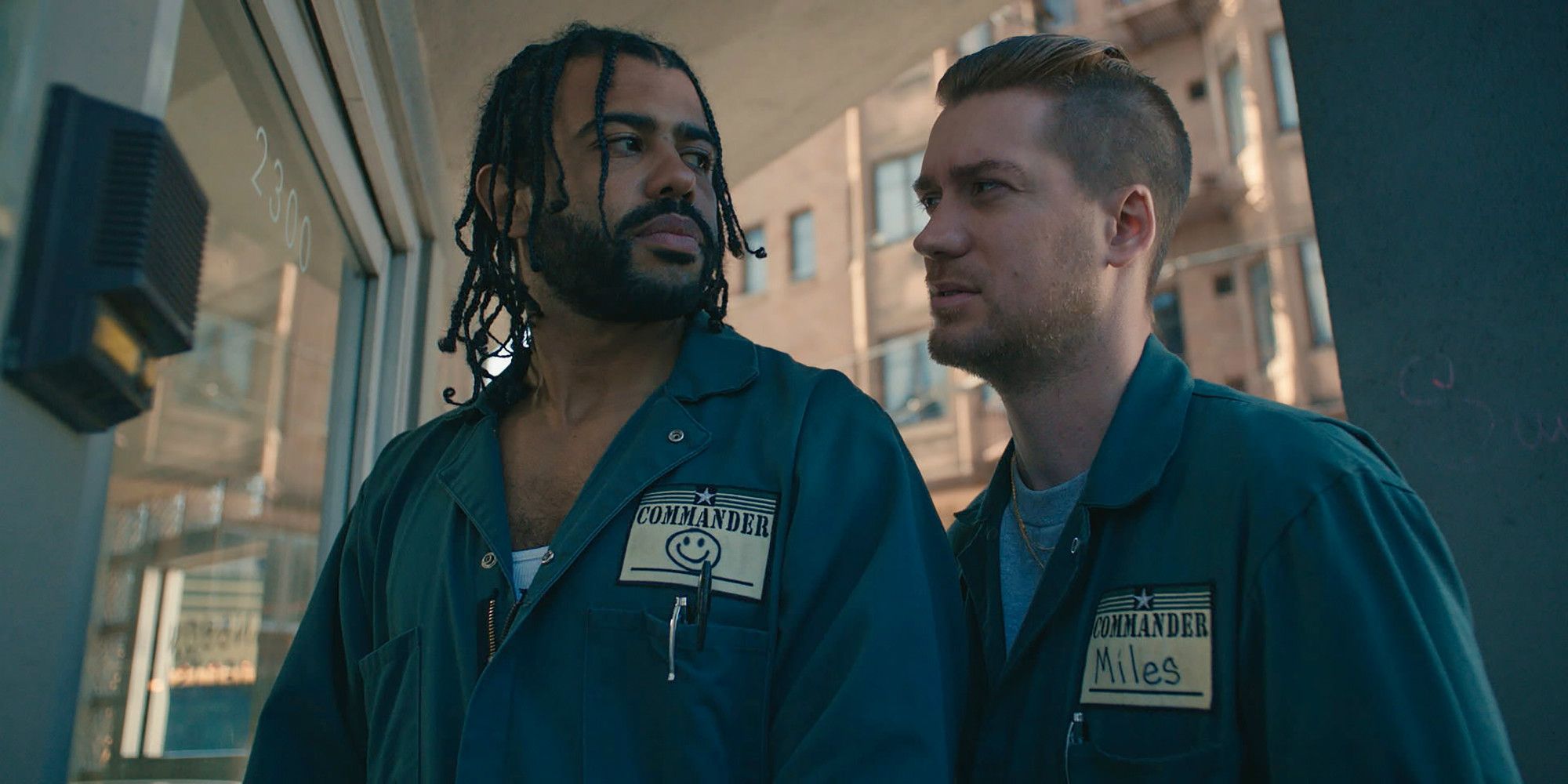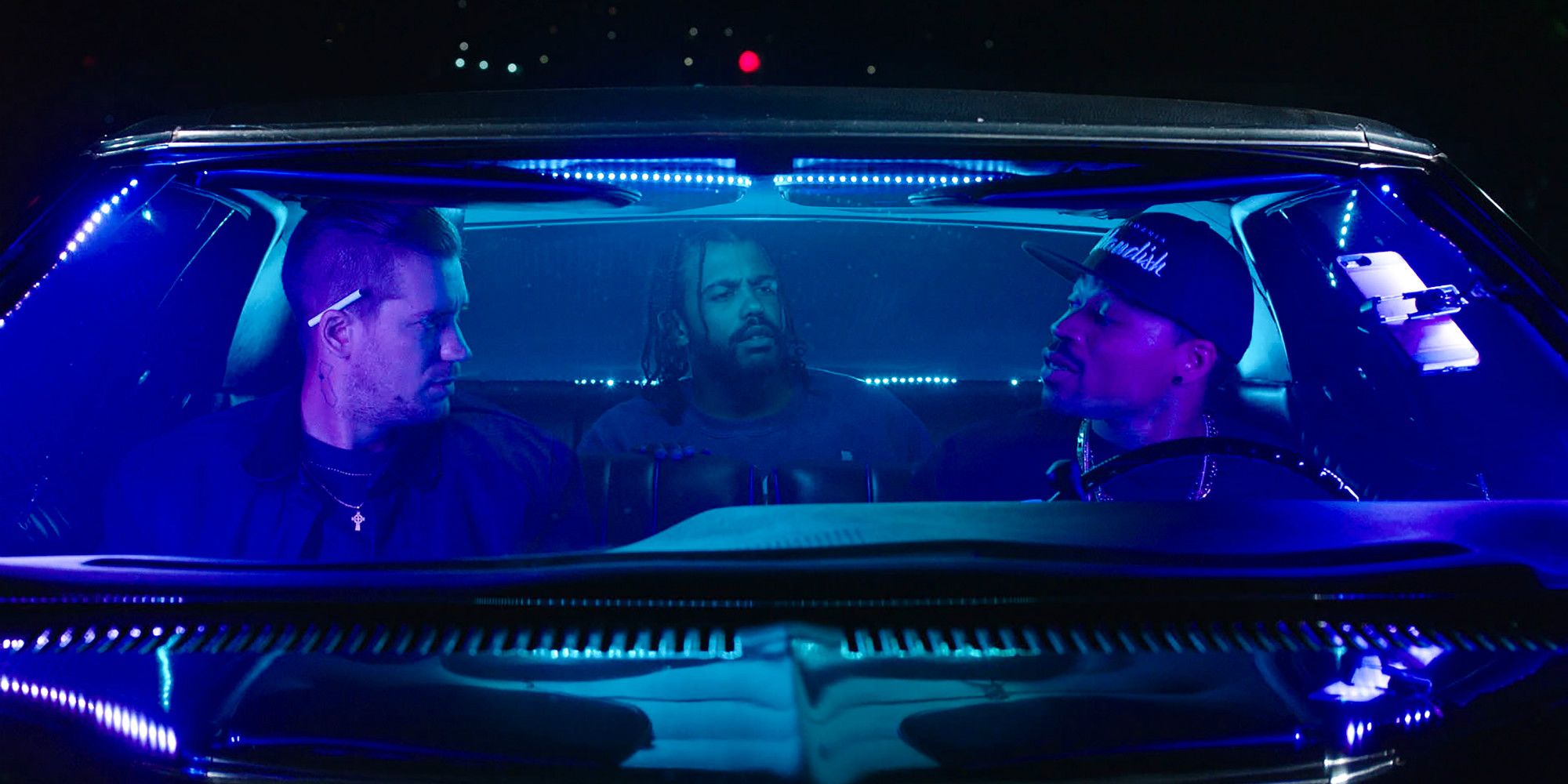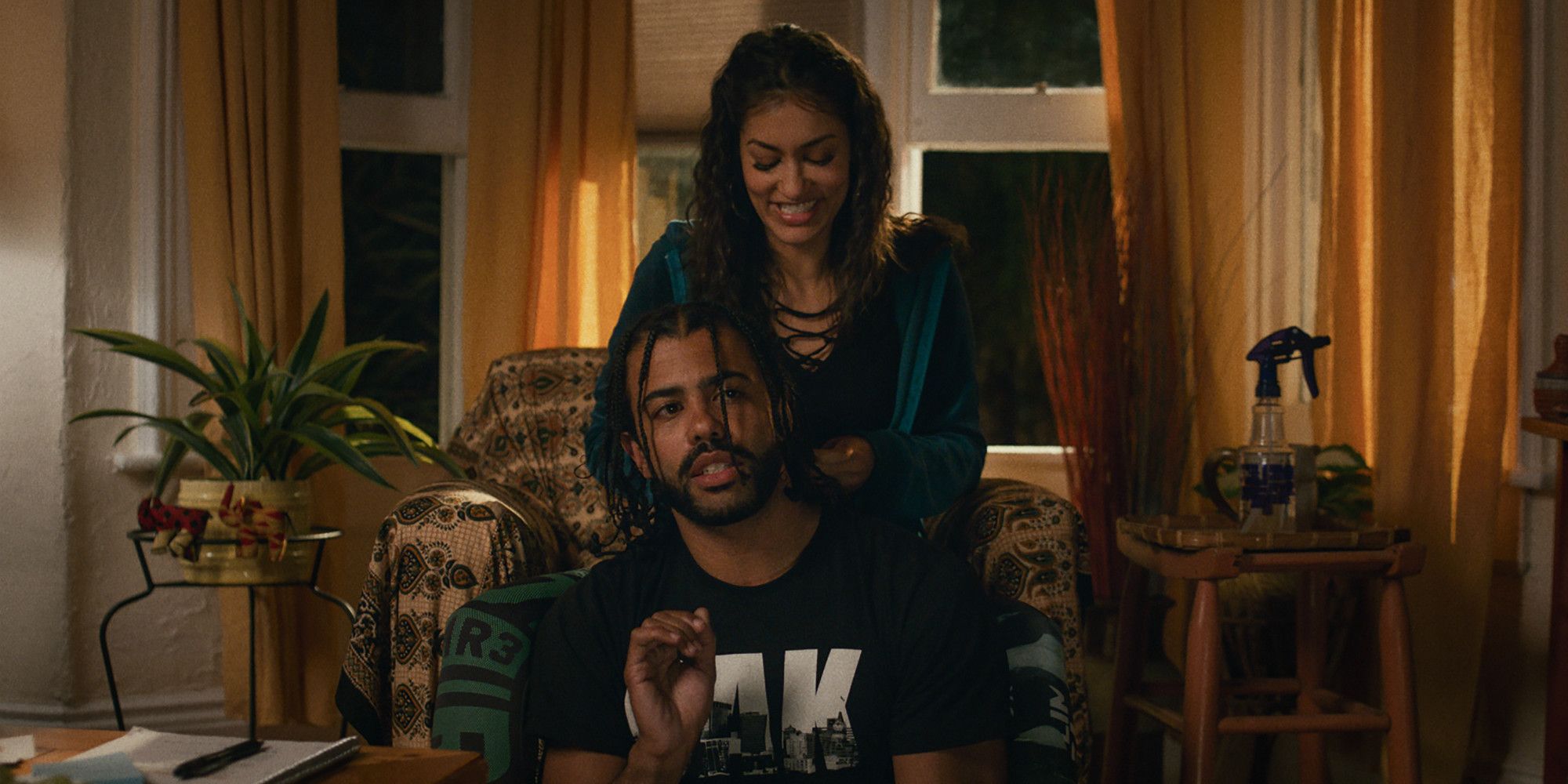Blindspotting effectively balances buddy comedy with astute social commentary, providing fun and gut-wrenching anger and despair in equal measure.
Daveed Diggs, a veteran of the musical theater scene, saw his star rise in a major way after joining the Broadway smash hit Hamilton as the Marquis de Lafayette and Thomas Jefferson. After departing Hamilton in 2016, he's transitioned to film and television, taking roles in Netflix series The Get Down and Unbreakable Kimmy Schmidt as well as Wonder and Ferdinand. Now, Diggs makes his theatrical writing debut on Blindspotting, a film he co-wrote, co-produced and co-starred in with Rafael Casal. Diggs and Casal teamed up with music video and film director Carlos López Estrada for their movie. Blindspotting effectively balances buddy comedy with astute social commentary, providing fun and gut-wrenching anger and despair in equal measure.
In Blindspotting, Diggs stars as Collin, a convicted felon who is wrapping up the final days of his probation, working and hanging out with his childhood best friend, Miles (Casal), in their home of Oakland, California. With two days left on his probation, Collin is stopped at a stoplight, trying to get back to the halfway house before his curfew, when a black man runs in front of his truck, then continues on. Oakland police officer Molina (Ethan Embry) is chasing the man and stops right next to Collin's truck, shooting the man four times, killing him. Collin is moved along by other cops who arrive on the scene, and he tries to put the murder out of his mind as his probation winds down.
Collin and Miles go to work at the moving company where Collin's ex-girlfriend Val (Janina Gavankar) got him a job after he was released from prison. They both take notice of the gentrification going on around them in Oakland, and Miles reacts largely in anger, acting out against "transplant" hipsters, buying a gun, and starting fights. Collin, however, takes stock of his relationship with Miles and how he must present himself differently in the world than his oldest friend because of how they're each perceived based on their skin color. Between all the pressure Collin is under to complete his probation and avoid the same fate as the man he saw fatally shot by the police, and the growing tension between him and Miles, something threatens to snap - and it's unclear if he or his relationship with Miles will survive such a thing.
At first glance, Blindspotting is another piece of media tackling the subject of police violence against people of color - black people, in particular. But, to ignore all the other aspects of the movie - Collin's relationship with Miles, Collin's own incarceration and probation - is to commit what the film terms blindspotting, to see only one picture when there's much more depth to what you're looking at. Blindspotting is a carefully layered look at Collin's life and how each aspect intersects with his experiences and is influenced by the gentrification of his home town and the dynamic between communities made up of people of color and the police force charged with protecting them.
Still, where Blindspotting could have been solely focused on the drama of Collin's predicament - the despair, anger and other emotions that come with his probation and the trauma of witnessing a white cop murder a black man - the movie instead strikes a balance with humor and, at times, carefree comedy. The balance allows Blindspotting to feel more real, too, because there is often balance to be found in life; life isn't just despair and anger, it isn't just humor and comedy. That balance is achieved in Blindspotting thanks to the writing of Diggs and Casal, with a script that infuses verse and slang both casually and for great dramatic effect. Blindspotting has an originality in its dialogue and authenticity that brings viewers straight into the heart of Oakland and its residents. Further, both Diggs and Casal turn in absolutely compelling performances as Collin and Miles, respectively, with their relationship making for an equally heart-warming and heartbreaking core of the film.
Blindspotting further stands apart from other films thanks to its use of verse, musicality, and the direction by Estrada. It's made clear early on in the movie that verse and making up rhymes is a core part of Collin's character, and that storytelling device is then used to great effect by the film to portray his mental state in certain key scenes. Taking that even further, Estrada puts his experience directing music videos to use in one particular sequence that looks and feels like a standalone music video, but still fits well enough into the fabric of Blindspotting. Estrada brings a dynamic eye to the film, constantly, but subtly, reinforcing the theme of there being two pictures in one - the one viewers initially see, and the one viewers must train themselves to see.
Estrada's direction, coupled with Diggs and Casal's script as well as their performances, bring a richness and life to Blindspotting that's so necessary for a film also dealing closely with death. Of course, the movie is propelled by solid performances from its supporting cast: Gavankar as Collin's ex-girlfriend Val and Jasmine Cephas Jones as Miles' girl Ashley, both of whom offer crucial insight into the dynamic between men and women in Blindspotting. The film also features hilarious turns from Tisha Campbell-Martin as local hair salon owner Mama Liz and Utkarsh Ambudkar as Rin, a man who witnessed the crime for which Collin went to prison. Lastly, Embry's subtle performance as Officer Molina is essential for the character to work as a compelling foil to Collin, and it brings depth to Blindspotting.
Ultimately, Blindspotting is a timely and important film tackling the topics of police violence especially against unarmed black people, the difficulties of convicted felons re-entering society, and gentrification - but it never loses sight that movies are entertainment and can be fun even while addressing very serious issues. It's a frank look at Collin's life as a convicted felon in Oakland and, as such, Blindspotting never shies away from the more difficult aspects of his experiences, nor the lighter and more fun moments. It's a compelling comedy/drama that can appeal to most anyone, but there are undoubtedly folks who come from communities like Oakland and have experiences like Collin's and Miles' who will see themselves - perhaps for the first time on screen - in Blindspotting. And, to be sure, Blindspotting does those communities and those people justice.
Trailer
Blindspotting is now playing in U.S. theaters nationwide. It runs 95 minutes and is rated R for for language throughout, some brutal violence, sexual references and drug use.
Let us know what you thought of the film in the comments section!




